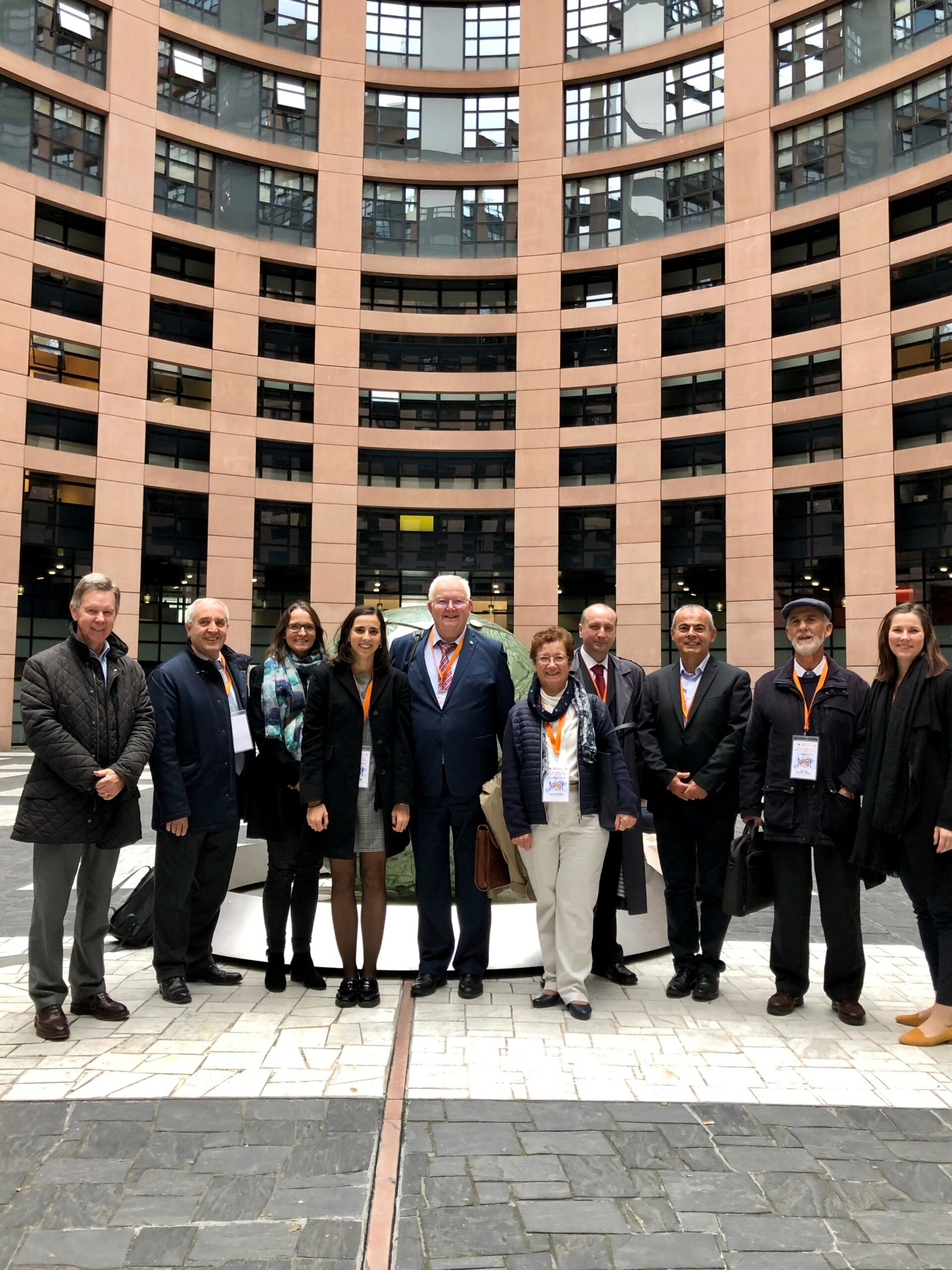On 24 and 25 October, 11 participants of the FEBA EU Working Group gathered in Strasbourg (France).
On the 24 of October the Fédération Française des Banques Alimentaires organised a conference « L’aide alimentaire en Europe: des moyens à la hauteur des enjeux? » at the European Parliament in Strasbourg. The FEBA EU Working Group was invited to participate. The conference was the occasion to take stock of the current trends at the European level regarding in particular the current Fund for European Aid to the Most Deprived (FEAD) and the negotiations for the European Social Fund Plus (ESF+), stressing the importance of this fund for the Food Banks all over Europe.
The conference opened with an intervention of Anne Sander (MEP, Member of the Parliament’s Bureau and Quaestions) who underlined the importance of Food Banks as a concrete sign of solidarity in the European Union. European institutions are currently in the middle of the discussions for the future Multiannual financial Framework 2021-2027, including the allocation for food and material assistance. Therefore, she underlined how these are important months where the future of European food aid will be decided.
Jacques Bailet, the President of the Fédération Française des Banques Alimentaires continued underlying the impact that such fund can have on the daily activity of Food Banks and thousands of charities all around Europe and Food Banks will support EU institutions in the negotiations.
Moreover, Maria-Anna Paraskeva (Senior Policy Officer, DG EMPL, European Commission) spoke about the stakes of food aid at European level. She reminded the audience about some important figures on the impact of FEAD in Member States. She demonstrated some concerns for the future of FEAD because it will be integrated in the ESF+ together with other funds and highlighted how the European Union must focus on the most deprived people in Member States and not only funds that target population with already higher possibility to succeed. Moreover, she explained that, due to the long process of the trialogues, negotiations will not end before the end of the second semester 2020.
The intervention of Josè Luis Diez del Corral (Director of Institutional Relations, Federación Española de Bancos de Alimentos) focused on a general overview about food aid in Spain and the concrete impact of the FEAD on charities and the most deprived.
The Conference ended with the intervention of Jacques Vandenschrik, President of the European Food Banks Federation, who made a presentation on the FEBA activities and impact especially regarding the FEAD. He stressed the importance of an enhanced effort at European level to avoid a reduction in the total budget for the ESF+ and in particular the percentage dedicated to food and material assistance. The European Union should not underestimate this issue for the upcoming years.
The following day, FEBA EU working group continued the works with a workshop on “Resuming work on FEAD and ESF+”. Participants gave valuable contributions sharing information from the different countries and trying to figure out a common path to advocate with the European institutions for the coming important months as regards the ESF+ and in particular food and material assistance. As the President underlined, it is important to focus all the efforts on what FEBA members want to achieve and what are our common goals. Especially at European level there will be substantial challenges but a comprehensive and coordinated action can reach better results, being a unique voice in in dialogue with European institutions, other EU-level organizations and also with Member States at national level.




